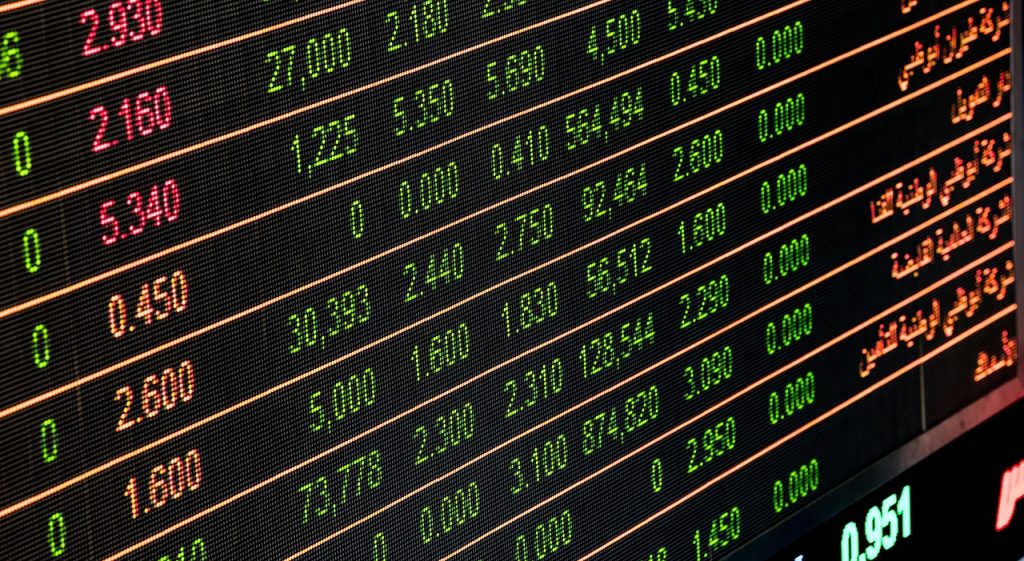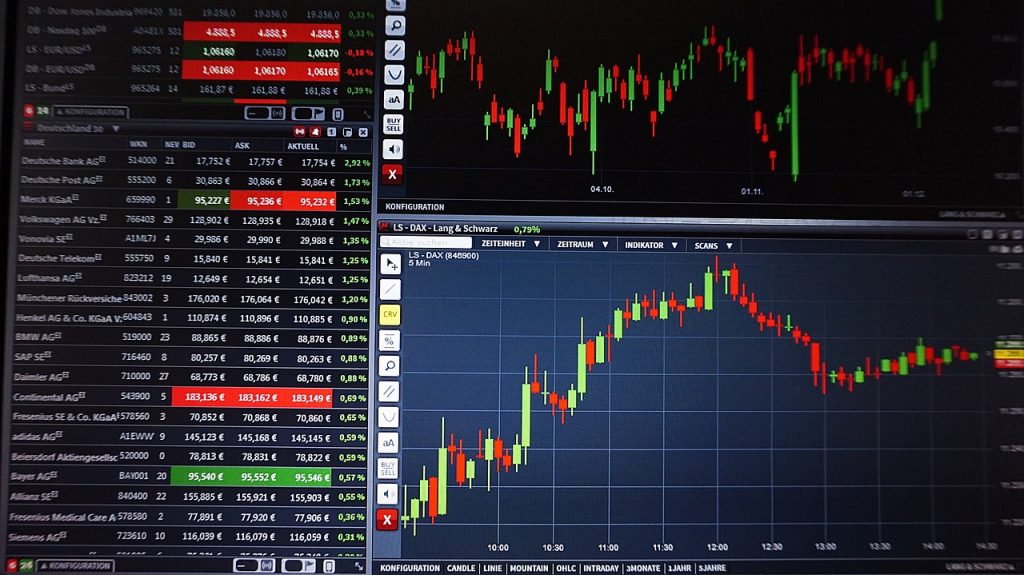If you’ve ever dabbled in forex trading or are curious about the world of trading foreign exchange, then understanding the spread is crucial. The spread refers to the difference between the buying price and selling price of a currency pair, and it plays a significant role in determining your profits and losses. In this article, we’ll explore the concept of the spread in forex trading, its impact on your trades, and how to calculate it effectively. By grasping this fundamental aspect of forex trading, you’ll be better equipped to make informed decisions and maximize your potential for success.
What is Forex Trading
Definition of Forex trading
Forex trading, also known as foreign exchange trading or FX trading, is the process of buying and selling currencies on the foreign exchange market. It is a decentralized market where traders can speculate on the value of different currencies against one another. The goal of forex trading is to make a profit by taking advantage of the fluctuations in exchange rates.
The foreign exchange market
The foreign exchange market, commonly referred to as the forex market, is the largest and most liquid financial market in the world. It operates 24 hours a day, five days a week, with trading taking place across different time zones around the globe. The forex market allows participants to trade various currencies, including major, minor, and exotic currency pairs.
Participants in forex trading
The forex market is composed of various participants, including banks, financial institutions, corporations, governments, and individual traders. Banks play a crucial role in forex trading as they facilitate currency transactions for their clients. Financial institutions also participate in the market to generate revenue through currency trading. Additionally, corporations engage in forex trading to hedge against currency risks arising from international business activities. Governments may intervene in the forex market to stabilize their domestic currency. Finally, individual traders, including retail traders, participate in forex trading to speculate on currency price movements and potentially make a profit.
What is Spread in Forex Trading
Definition of spread
Spread refers to the difference between the bid price and the ask price of a currency pair in forex trading. It represents the cost of executing a trade and is typically displayed in pips. The bid price is the price at which a trader can sell a currency, while the ask price is the price at which a trader can buy a currency. The spread is measured in pips, which is the smallest unit of measurement in forex trading.
Importance of spread
The spread is a significant factor to consider when trading forex, as it directly impacts trading profitability. A narrower spread means lower transaction costs, which can enhance profitability for traders. On the other hand, a wider spread implies higher costs and can reduce potential gains. Therefore, understanding and managing spread is crucial for successful forex trading.
How spread is calculated in forex trading
Spread is calculated by subtracting the bid price from the ask price. For example, if the bid price of a currency pair is 1.2000 and the ask price is 1.2005, the spread would be 5 pips. It is important to note that the spread may vary between different currency pairs and different forex brokers. Some brokers offer fixed spreads, while others provide variable spreads that can change depending on market conditions.

Types of Spreads
Fixed spread
A fixed spread refers to a constant difference between the bid and ask prices of a currency pair. This type of spread does not change, regardless of market conditions or volatility. Fixed spreads can be advantageous for traders who prefer stable trading costs and want to avoid unexpected increases in spread during times of high market volatility.
Variable spread
A variable spread, also known as a fluctuating spread, is not fixed and can change depending on market conditions. The spread can widen or narrow based on factors such as market liquidity, volatility, and economic news. Variable spreads are common in the forex market and may provide traders with tighter spreads during periods of high liquidity and narrower spreads.
Floating spread
A floating spread is similar to a variable spread, but it can change more frequently. The spread fluctuates based on market conditions and can widen or narrow rapidly. Floating spreads are typically used by market makers and can offer traders the opportunity to benefit from narrower spreads during favorable market conditions.
Commission-based spread
Some forex brokers charge a commission in addition to the spread for executing trades. In this case, the spread may be relatively narrow, but traders pay a separate commission fee for each trade. Commission-based spreads can be suitable for traders who prefer transparency and want to avoid hidden costs.
Non-commission-based spread
Non-commission-based spreads, also known as zero spreads or raw spreads, do not involve any additional commission fees. Instead, the broker includes the transaction costs within the spread. Traders should be cautious with non-commission-based spreads, as they may be wider compared to commission-based spreads, resulting in higher trading costs.
Factors Affecting Spread
Market liquidity
Market liquidity refers to the ease with which a currency pair can be bought or sold without causing significant price movements. In highly liquid markets, such as major currency pairs, spreads tend to be narrower due to high trading volume and competition among market participants. In less liquid markets, such as exotic currency pairs, spreads may be wider due to lower trading activity.
Volatility
Volatility refers to the extent and frequency of price fluctuations in the forex market. Higher volatility can lead to wider spreads as market participants adjust their prices to reflect the increased risk and uncertainty. During periods of low volatility, spreads may be narrower as there is less price movement and reduced risk.
Economic news and events
Major economic news releases and events, such as monetary policy decisions, GDP reports, and employment data, can significantly impact currency prices and market sentiment. The anticipation and reaction to these events can lead to increased volatility and wider spreads. Traders should be aware of upcoming economic news and events that may affect the spread and adjust their trading strategies accordingly.
Trading session
The forex market operates in different trading sessions, including the Asian, European, and North American sessions. The overlap of multiple sessions can result in increased trading activity and liquidity, leading to narrower spreads. Conversely, during the Asian session when market liquidity is lower, spreads may be wider.

Understanding Bid and Ask Price
Definition of bid and ask price
The bid price represents the price at which a trader can sell a currency pair. It is the price at which market participants are willing to pay to buy the base currency (the first currency in the currency pair) and sell the quote currency (the second currency in the currency pair). The ask price, on the other hand, is the price at which a trader can buy a currency pair. It is the price at which market participants are willing to sell the base currency and buy the quote currency.
Relationship between bid and ask price
The bid price is always lower than the ask price. The difference between the bid and ask price is the spread. For example, if the bid price for a currency pair is 1.2000 and the ask price is 1.2005, the spread would be 5 pips. This spread represents the transaction cost incurred when executing a trade.
Spreads in bid-ask prices
The spread in bid-ask prices refers to the difference between the bid price and the ask price of a currency pair. This spread is an essential factor to consider when trading forex, as it directly affects the cost of entering and exiting positions. The narrower the spread, the lower the transaction costs, and potentially the higher the profitability for traders.
Spread in Currency Pairs
Major currency pairs
Major currency pairs are the most actively traded currency pairs in the forex market. They involve currencies from the world’s largest economies, such as the United States, European Union, Japan, United Kingdom, and Switzerland. Major currency pairs include EUR/USD, GBP/USD, USD/JPY, and USD/CHF. These pairs typically have the narrowest spreads due to high liquidity and trading volume.
Minor currency pairs
Minor currency pairs, also known as cross currency pairs or simply crosses, do not involve the US dollar. They consist of currencies from smaller economies, such as the Australian dollar (AUD), Canadian dollar (CAD), and New Zealand dollar (NZD). Examples of minor currency pairs include AUD/JPY, CAD/CHF, and NZD/CAD. Minor currency pairs may have wider spreads compared to major currency pairs due to lower liquidity and trading volume.
Exotic currency pairs
Exotic currency pairs involve currencies from emerging or less frequently traded economies, such as the Mexican peso (MXN), Brazilian real (BRL), or South African rand (ZAR). Examples of exotic currency pairs include USD/MXN, EUR/BRL, and GBP/ZAR. Exotic currency pairs tend to have wider spreads compared to major and minor currency pairs due to lower liquidity, higher volatility, and limited trading activity.

Costs and Risks Associated with Spread
Impact on trading profitability
The spread directly affects the trading profitability of forex traders. A wider spread increases the transaction costs, reducing potential profits. Therefore, it is crucial for traders to consider the spread when entering or exiting positions. By minimizing spread costs, traders can improve their overall trading profitability.
Trading costs
Spread is one of the primary trading costs incurred by forex traders. It represents the difference between the buy and sell prices, and the wider the spread, the higher the trading cost. Traders should carefully consider the spread offered by their chosen forex broker to ensure it aligns with their trading strategy and profitability goals.
Slippage
Slippage refers to the difference between the expected price of a trade and the price at which the trade is executed. It can occur due to market volatility, low liquidity, or delays in order execution. Slippage can potentially widen the spread and result in higher transaction costs for traders.
Market manipulation
In some cases, market participants may engage in market manipulation by artificially widening spreads to their advantage. This can result in increased trading costs and reduced profitability for traders. It is important for traders to choose reputable forex brokers who adhere to regulatory standards and provide fair and transparent pricing.
Managing Spread in Forex Trading
Choosing the right broker
Selecting the right forex broker is crucial for managing spread in forex trading. Traders should consider factors such as the broker’s reputation, reliability, regulatory compliance, and the spreads they offer. Comparing spreads across different brokers can help traders find the most competitive pricing and reduce trading costs.
Leverage and margin
Leverage allows traders to control large positions with a relatively small amount of capital. While leverage can amplify potential profits, it can also increase risks and magnify losses. Traders should use leverage cautiously and consider its impact on spread costs. Additionally, maintaining adequate margin levels is essential to avoid margin calls and potential spread widening.
Executing trades during optimal conditions
Market conditions can impact the spread, and it is advisable for traders to execute trades during optimal conditions. During high liquidity periods and overlapping trading sessions, spreads tend to be narrower. Traders should be aware of the market hours and economic events that may affect the spread and adjust their trading activity accordingly.
Using limit orders and stop orders
Limit orders and stop orders are trading tools that can help manage spread costs. A limit order allows traders to set a specific price at which they want to buy or sell a currency pair. By using limit orders, traders can target entry and exit points with desired spread levels. Similarly, stop orders can be used to protect profits or limit losses by automatically executing trades when the market reaches a specific price level.

Spread Betting vs Forex Trading
Definition of spread betting
Spread betting is a form of derivative trading that allows traders to speculate on the price movements of various financial instruments, including currencies. Instead of buying or selling the underlying assets, traders bet on whether the price of an instrument will rise or fall. The spread in spread betting represents the difference between the buy and sell price determined by the spread betting provider.
Differences between spread betting and forex trading
While both spread betting and forex trading involve speculating on currency price movements, there are significant differences between the two. In spread betting, traders do not own the underlying assets, and profits or losses are determined by the accuracy of their predictions. Forex trading, on the other hand, involves buying and selling actual currencies, with profits or losses determined by the price fluctuations.
Another difference is the tax treatment. In many countries, spread betting is considered a form of gambling and is therefore tax-free. Forex trading, on the other hand, is subject to taxation in most jurisdictions.
Similarities between spread betting and forex trading
Both spread betting and forex trading offer opportunities for traders to profit from currency price movements. Both types of trading involve analyzing market trends, using technical analysis tools, and managing risk. Additionally, both spread betting and forex trading provide access to leverage, allowing traders to control larger positions with smaller amounts of capital.
Conclusion
Summary of spread in forex trading
Spread is a fundamental concept in forex trading that represents the difference between the bid and ask prices of a currency pair. It is an essential factor to consider as it directly impacts trading costs and profitability. Understanding the types of spreads, factors affecting spread, and their implications can help traders make informed decisions and manage their trading strategies effectively.
Importance of understanding spread for successful trading
Understanding spread is crucial for successful forex trading. It allows traders to assess the costs associated with executing trades and plan their strategies accordingly. By choosing brokers with competitive spreads, executing trades during optimal conditions, and utilizing trading tools effectively, traders can manage spread costs and increase their chances of achieving profitable trades in the forex market.


